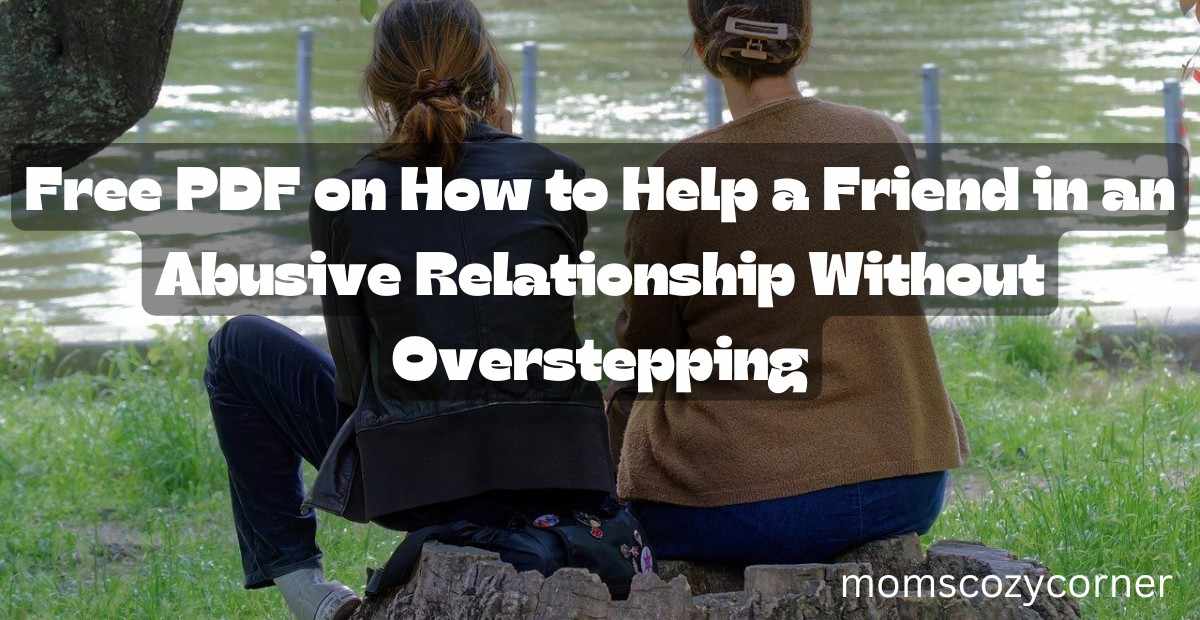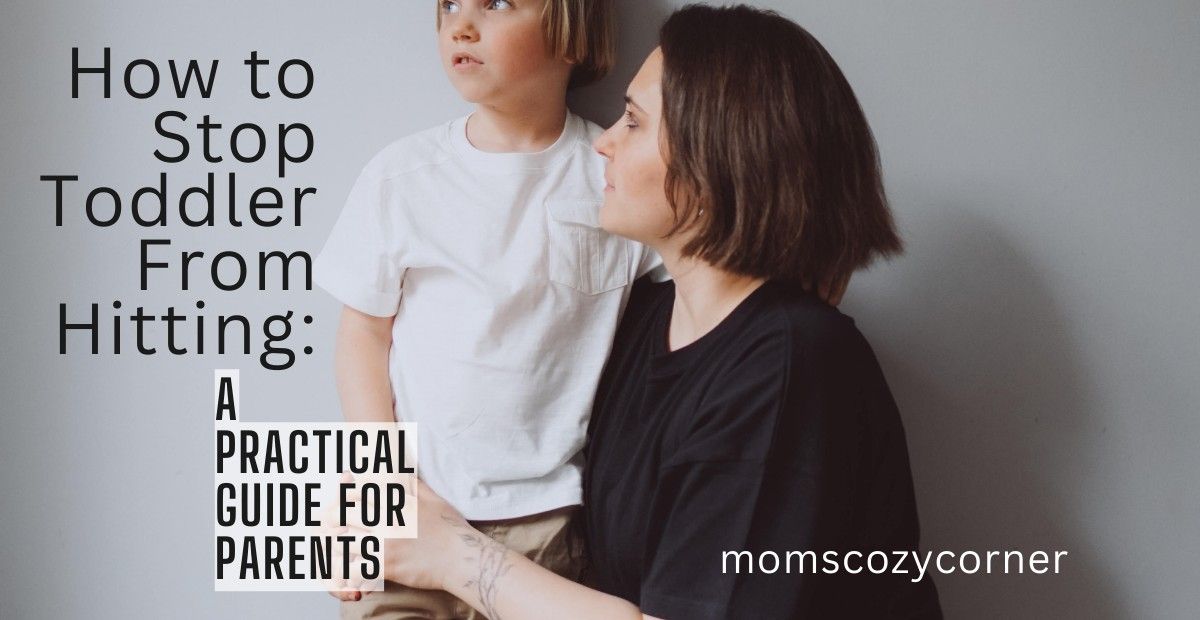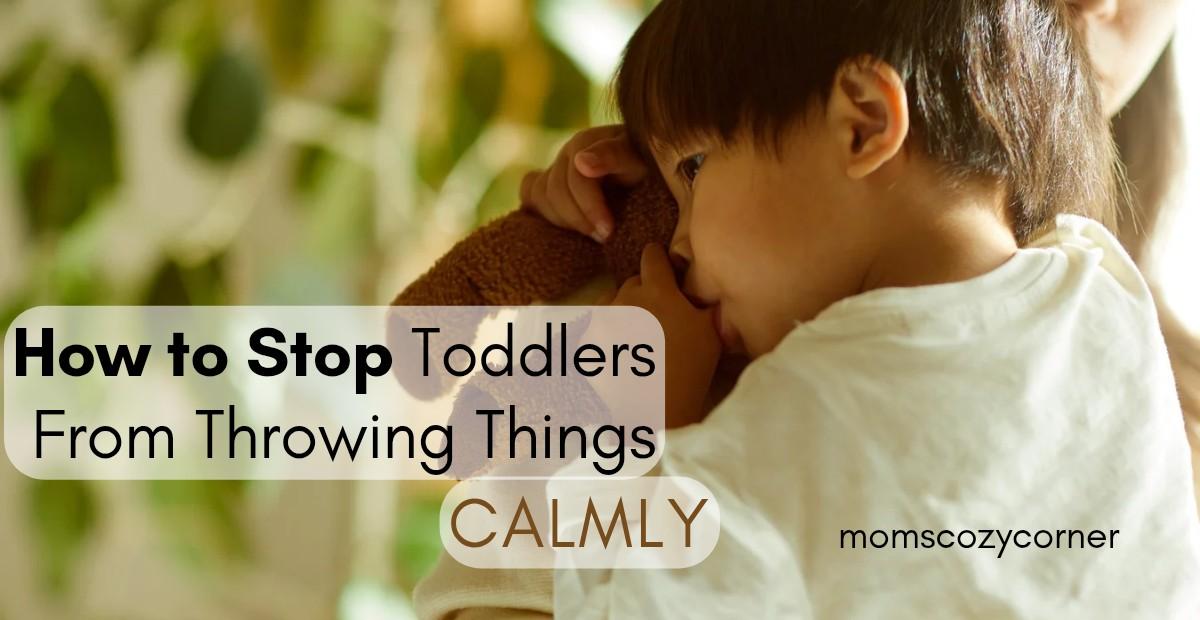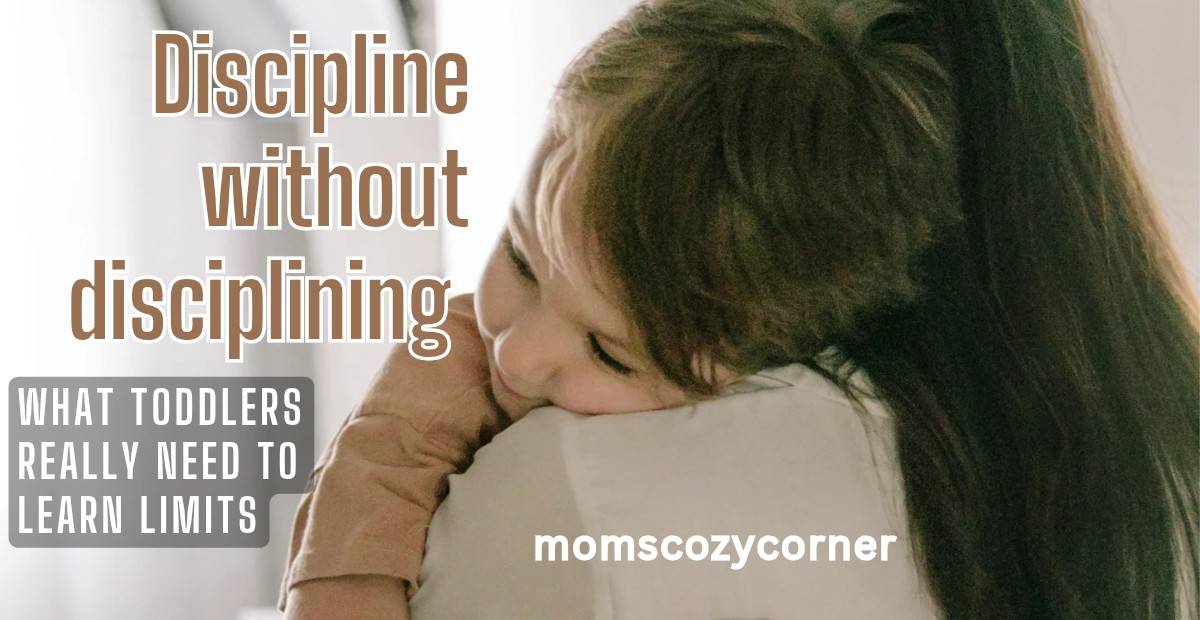How to Help a Friend in an Abusive Relationship – Grab Your Free Resource Now
Introduction
This took me a lot of time to write. It needed a lot of attention, as no two abusive relationships are the same. Seeing my close friend have a hard time motivated me to help. The way I help my friend deal with her abusive relationship may not be exactly right, but it always comes from the heart. I am writing this in the hope that it helps another parent support someone they care about who’s facing the same thing.

Abuse Can Happen in Many Ways
My friend suffered physical abuse, which caused me a lot of pain. Nevertheless, people can be abused and not have any physical signs. You might experience being separated from people who care about you, always being criticized, and having your own needs go unmet, while he spends money wherever he wants. When he refuses to let you talk to others, watches your movements, or acts as if your emotions have to get his OK, it is considered abuse.
A lot of moms focus on abuse as hitting alone; however, it can happen through harsh words, constant criticisms, or tearing you down over things that matter in life. Now, computers and even phones can be used to control through passwords and eavesdropping on calls. It’s abuse as well if he says your needs are a waste and demands you hand over your money.
A simple symptom to look for is if you don’t feel comfortable laughing, being honest, or being yourself in your marriage, it could be that your heart is telling you something is not right.
Sometimes abuse is not obvious to see. There are times when the unspoken pains last for a very long time.
What Not to Do
A few things I keep in my head really help my friend as she opens up about her abusive relationship. Those weren’t complicated tips — they were easy things I decided to try and worked well for me. Looking back, they really helped her feel safe and supported. I think that this is the kind of advice that could benefit someone else in a similar position. From what I’ve learned, sharing things mom to mom is worthwhile, since even the little moments can create the biggest differences.
Don’t Judge or Blame
When my friend first started opening up, she didn’t say, “Hey, my husband hit me.” Nope. At the beginning, there was a simple, “I’m not feeling’ right today.” Rather than avoiding it, I asked, “Is something having you upset?” Want to talk?” She said she was not interested.
A few days following that, she said it had happened again. She described that her husband became upset when they were eating dinner, saying he didn’t like what she had prepared. It looked like a usual bad day at first. I told her, “Even my husband feels cranky when he’s stressed out.” So I suggested she talk with him about what she feels and maybe inquire about his dinner choice next time.
I didn’t think for a moment that she was responsible. Avoid saying things such as “Maybe you need to fix the recipe” or “Don’t take it so seriously.” Judging her? Completely out of the question. That small space I held to help my friend feel safe became the reason she could finally open up about being in an abusive relationship.
Don’t Force Her To Leave
The day my friend finally told me she was being physically abused, it hit me hard. I was sure her life wasn’t always that way. It didn’t happen right away; it appeared little by little after the wedding. By the time she decided to leave her husband, she felt financially stuck and emotionally exhausted.
I kept telling myself I should say, “Run, girl, before it is too late.” You deserve more,” I could not say. Why? Because what happens in real life is more complicated. She had no savings, nowhere to go, and her young children were always following her.
Therefore, I didn’t try to fix it or advise her; I just gave emotional support by listening. I told her, whatever comes, I’m there for her. If somebody is terrified and feels stuck, pushing them to act bravely can make things worse.
Leaving an abusive relationship isn’t just about walking out the door. That means always being smart, having an escape route, and trusting that someone is looking out for you. Rather than commanding, “Just leave,” encourage them by saying, “I am here whenever you are ready, and we will figure it out together.”
Don’t Share Her Story With Others
When my friend started opening up about what she was going through, I knew one thing for sure — I couldn’t share her story with anyone. Not even my husband knew all this. To be honest, the wrong person might hear it and offer advice that ends up making her situation worse.
Sometimes, the people around us are not very nice, and some people have bad intentions. If I had shared her story with, say, a male friend just to “get a second opinion,” she could’ve been approached in the wrong way… and that could’ve messed things up even more. Being in that state left her at risk, and the last thing she desired was someone trying to use that against her.
She put the most trust in me above anything else. She didn’t open up completely immediately. The process was time-consuming. She waited, kept quiet, and finally, bravely, decided to open up. I admire that respect very much. It didn’t feel right to me to tell her story to anyone else.
So if your friend comes to you with something heavy — zip it. Do not post the incident just to make yourself look good or get sympathy. You won’t help anyone by breaking her trust. It might actually result in even more harm than it prevents.
Don’t Say ‘I Would Never Let That Happen’
One thing I never do is say, “I would absolutely prevent that from happening in my life.” That kind of comment doesn’t help your friend. Instead, it really goes the other way.
Considering that, if I told her this, what would she experience? That she’s not very strong? That she is unable to take care of herself or her responsibilities? That I must know more or am capable of solving every problem? That’s not a friendly vibe — it’s judgment wrapped in a subtle way.
Relationships are not the same for every couple. The mental health, past experiences, and feelings of each woman are not the same. I’m not sure the way I would handle it if I were her. I think I would have reacted in much the same way as her. Because of this, I make the conscious choice to hold a space rather than make judgments.
She kept wondering if it was her fault — or if he still loved her deep down.
If you’re feeling that too, this post might help: Why Doesn’t My Husband Love Me? Here’s the Fix.”
So, if you truly want to help your friend through an abusive relationship, don’t throw in those “I’d never tolerate this” type of statements. They don’t build your character but only isolate her further.

What You Can Do to Truly Help
I know what you’re thinking — “What do I even do?” I’ve been there too. I just stuck to a few things that honestly helped my friend get out of her abusive relationship. It’s not just personal advice — it’s something that really works.
Be a Safe Space
One night — around 1 a.m.—my friend called me, crying. She had been badly hurt by her husband. Anger taking over, she began running out of the house, but she soon realized she couldn’t stay alone outside knowing her kids might be concerned. This led her to return home. She still hesitated to ring my phone at that late hour. Eventually, the stress became too much for her, and she realized she needed someone, so she called.
And honestly? I was quiet. She cried continuously for nearly five minutes. I used a soft voice to ask “What happened?” and simply allowed her to cry. There I was, holding the phone, feeling completely helpless and heartbroken. I was silent and didn’t try to give advice that night. I didn’t inquire. That moment was all about letting her be exactly who she is.
She added, “He hit me, and my face is all swollen now.” I was looking for someone I could just cry to. Hence, I wanted to talk to you. She finished the call by saying good night and hanging up.
But that moment? That phone call? It made it clear to me that I had given her a real sense of security. She realized she could talk to me, be silent, cry, or feel upset, and I would still be attentive to her needs.
Sometimes, that’s the biggest thing you can do to help your friend in an abusive relationship — be a safe space. There is no need for pressure, advice, or judgment. One who simply answers the need.
Help Her Be Prepared, Just in Case
One of the things I gently told my friend early on — without scaring her or pushing her — was to keep her important documents safe. Papers such as their children’s birth certificates, school files, her own education documents, and nationality IDs. Suggested that she put everything in a folder and have it handy just in case she needed to access it.
I didn’t tell her, “Come out of the house immediately.” To be truthful, it’s really her life. I am able to give my support, to listen and help her, but I can’t make her new life appear suddenly. She should make that call on her own. I hoped she would know how to handle it just in case. If you’re wondering how to do this safely and simply, here’s a step-by-step guide to organizing important documents at home with less stress.”
Let Her Know You’ve Got Her Back
I said to her, whenever she needed me to watch her kids for a short while, I’d do it right away, no matter what. We talked about her dreams for her future career very often. Since she was a teacher before marriage, I knew she would be a strong candidate if she ever wanted to start teaching again. But she also had a true passion for makeup artistry — she enjoyed it a lot.
I never told her which job to go for. I shouldn’t get involved in that. But I did remind her that your kids depend on having meals, a home, and schooling. That’s what counts the most. I said, “Earn something steady to support yourself, and when your financial stability grows, you can go after your passions.”You know something? And that’s what happened. She decided to teach again and started working as a makeup artist just a couple of months back. I’m really proud of what she’s doing; she’s got it all figured out.
Trusted Helplines for Abuse, Safety, and Support
If you or someone you know is in an abusive relationship, you’re not alone — help is out there. Below are trusted resources that offer free, confidential support 24/7.
Emergency Help
911 – For immediate danger or emergencies, call 911.
National Support Resources
1. National Domestic Violence Hotline
Website: www.thehotline.org
Phone: 1-800-799-SAFE (7233)
Text: Text “START” to 88788
24/7, confidential, available in 200+ languages.
2. Love Is Respect (for teens and young adults in abusive relationships)
Website: www.loveisrespect.org
Phone: 1-866-331-9474
Text: “LOVEIS” to 22522
Offers chats and education on healthy relationships.
3. Women’s Law
Website: www.womenslaw.org
Legal information and help by state.
4. RAINN (Rape, Abuse & Incest National Network)
Website: www.rainn.org
Phone: 1-800-656-HOPE (4673)
Support for sexual violence survivors.
5. StrongHearts Native Helpline (for Native American communities)
Website: www.strongheartshelpline.org
Phone: 1-844-7NATIVE (1-844-762-8483)
A Heartfelt Note to Those Supporting a Friend Through an Abusive Relationship
You know, helping someone—especially a friend in an abusive relationship—isn’t easy. I have also carried that sense of pressure. Even though the final decision is hers, I couldn’t help but worry, “What if I guide her the wrong way?” There is a lot of pressure, and the role can be exhausting mentally. We figured it out somehow as a team. I don’t think everything I tried is the one answer—but these steps are general ones. They work. So, if you ever feel the need to help a friend in an abusive relationship, try them if they feel right to you. Be patient. Be supportive. Most importantly, she is looking for that from you.
And hey, if you’ve been in a similar spot—if you’ve helped a friend through something like this—I’d love to hear from you. Feel free to leave how you approach it in the comments. It might help another mom out there who’s struggling to support someone she loves.
Free Guide: How to Show Up for a Mom in an Abusive Relationship
When someone you love is in an abusive relationship, it’s hard to know what to say — or do. This short guide is for moms like you, who want to help without overstepping. Download it, keep it, or share it with someone who needs it.




